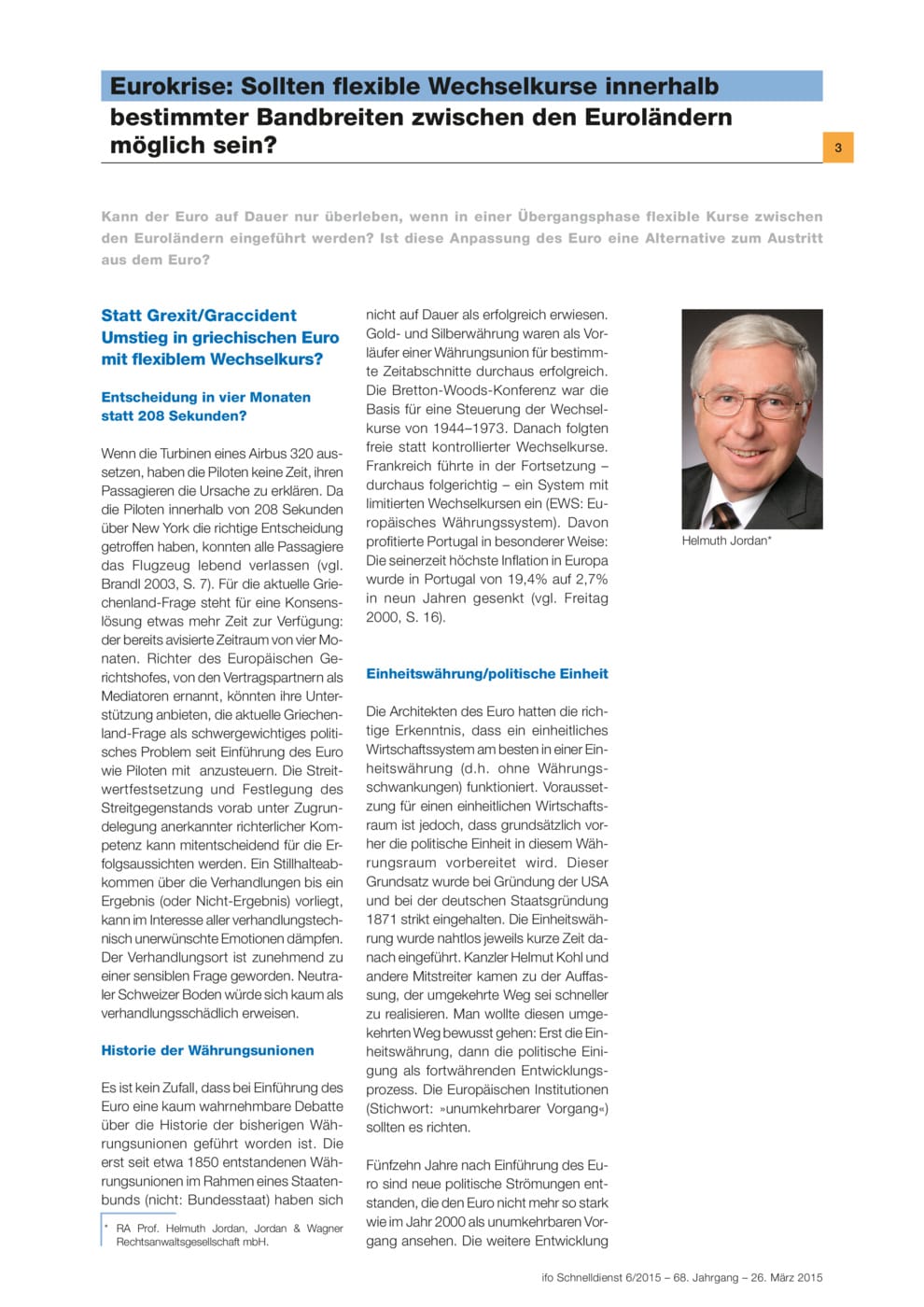Euro Crisis: Should Flexible Exchange Rates between the Euro Countries Be Possible Within Clearly Defined Ranges?
ifo Institut, München, 2015
ifo Schnelldienst, 2015, 68, Nr. 06, 03-08

Can the euro only survive in the long run if flexible exchange rates are introduced between the euro countries in a transitional phase? Helmuth Jordan, Jordan & Wagner Rechtsanwaltsgesellschaft mbH, sees this measure as an alternative to Greece’s exit from the euro. The return to an earlier currency could create the undesirable impression that history’s clock has been turned back. This would hardly improve Greece’s psychological position. If the Greek euro were to be devalued within a detailed framework agreement, this could improve Greece’s competitiveness. Devaluation is a well-known, tried-and-tested instrument of an adjustment that is perceived as economically necessary. Even if other states in the Eurozone were to apply for a similar form of devaluation, the consequences would presumably be less serious than these countries returning to their old currencies. Flexible exchange rates in a transitional phase could support the euro, as long as this would be on a fluctuating basis. In cases where there little progress is being made with structural reforms in euro countries, the exchange rate could act as an outlet. A flexible adjustment of the euro may be one path. According to Thomas Mayer, Flossbach von Storch Research Institute, Cologne, the euro needs to be redesigned as a community currency instead of a single currency to prevent it from failing. This could involve complementing the euro with national and regional public and privately issued parallel currencies. Currency competition would not only improve the quality of currencies overall, but it could also help to establish a differentiated use of currencies with the euro at their centre as required.